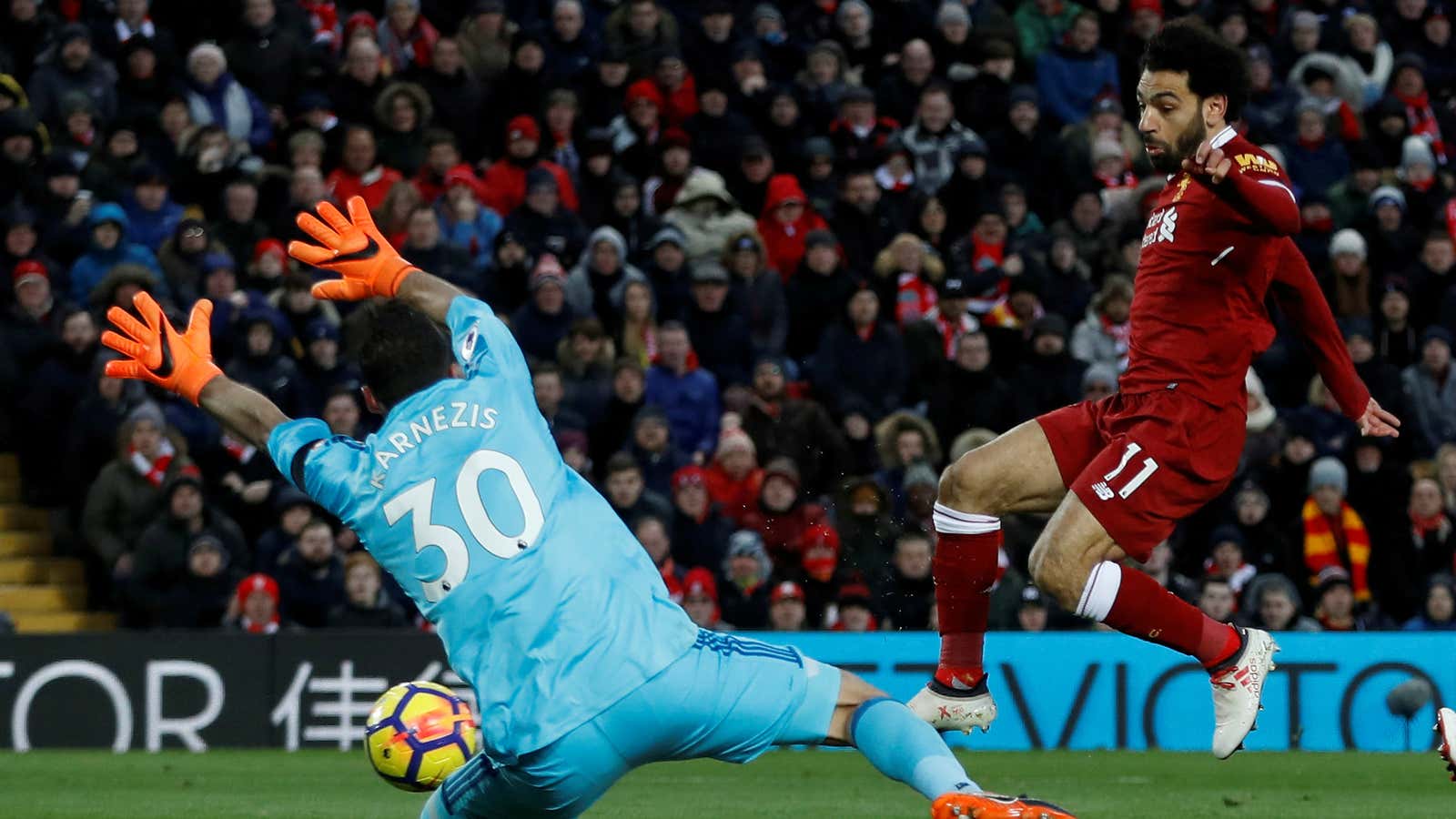Mohamed Salah’s 2017-18 season for Liverpool was a revelation. The Egyptian striker scored 32 goals in just 36 Premier League appearances, establishing himself as one of the best players in the world.
Will he do it again? Unless the 26-year-old somehow improves significantly as a player, statistics suggest almost certainly not. The 2018-19 Premier League season opens this weekend, with Liverpool facing West Ham in its first fixture.
“Expected goals” is perhaps the most important stat to come out of the soccer analytics movement. It seems ready to hit the mainstream. Although many versions of the measure have been developed, they are all based on the same fundamental idea: it’s not that the best scorers are great at shooting, it’s that they take a lot of great shots. That is, if you know the distance and angle a shot was taken from, whether it was a header, and if it was taken after a penalty or corner kick, you have nearly all the information you need to identify how likely that shot is to be a goal. Knowing which player took the shot—be it Salah or some journeyman striker coming off the bench in the 85th minute—isn’t particularly useful.
According to soccer website Undertstat, Salah had “expected goals” of 25 last year. This means that if you add up the probability that an average player would score on the shots Salah took last season, that player would normally score 25 goals. Expected goals are much more predictive of future goal scoring than actual goals, so we should assume Salah is more likely to score in the mid 20s this year than in the low 30s, like last season.
That is not to say that you, dear reader, are as good as Salah at taking shots during Premier League matches. It’s just that at the very top levels of professional soccer, there isn’t a big variation between players in their ability to finish a scoring chance. Even studies that find some players are better shooters than others only detect small deviations in outcomes.
For many long-time soccer fans, this seems wrong. Mike Goodman, managing editor of the soccer analytics site Statsbomb, understands this reaction. “I wouldn’t say that finishing isn’t a skill,” he says. “It’s just a very noisy statistic and hard to quantify. The main takeaway from expected goals should be that shooting is much less important to scoring than the kinds of shots you take.” He says the context of a shot explains more than 90% of its likelihood to go in.
Goodman also says that being a great shooter is helpful in getting good shots. Real Madrid winger Gareth Bale is an example of why shooting is important. “[Bale] can rocket the ball with his left foot from 35 yards,” Goodman explains. “That means that players have to close down on him more aggressively, which means he can use his speed to go by those players, and take better shots.”
Buying into expected goals can make watching your favorite team a little less stressful. You won’t get your hopes up too much if a silky striker uncorks a shot from deep, and know when to jump up in anticipation when even a plodding center back finds himself in a (statistically) great position to score.
